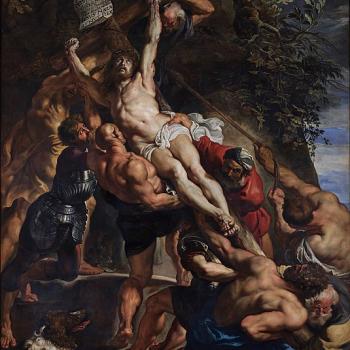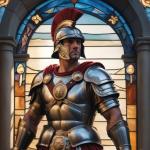Picking up on my exchange with David Davalos, author of Wittenberg–the play about Luther, Hamlet, and Faustus, this is his answer to what I posted yesterday:
Gene,
Again, thank you so much for your thoughts and encouragement. Emerson to Whitman? Wow. You may of course post my comments on your blog — I’m flattered to be asked.
Not to beat a dead horse-courser here with Faustus at the end of the play, but I did want to respond to your perfectly valid (and thorough!) analysis of the situation. My response is threefold: the first two parts are technical, the last a bit more esoteric. First, as you note, the play is, after all, a comedy. A serious comedy, perhaps (hopefully), but a comedy nonetheless. Faustus’ tragedy is still to come (maybe), but in another play (as is Hamlet’s, for that matter: the prince is last seen in my play embracing his philosophical acceptance at a moment of relative triumph). Second, Faustus is singing his final song in the here and now — his voice is the melody, with Luther and Hamlet speaking as temporally-displaced harmony — but I can’t really show him both in the present and the future simultaneously. So the perspective on Faustus at the end is less about where he’s headed and more about where he is. The last point is that I wanted to allow the possibility of Faustus meeting an end outside of the established tradition about him. The actual, “historical” Faustus, after all, allegedly met his fate as the result of an alchemical explosion, with neither the Devil or the Christ as active participants. Every age, it seems, reinvents its own Faustus — I wanted my reinvention to at least on some level address the possibility of having a fate beyond either salvation or damnation, a fate comprehensible to those in the audience who profess no particular beliefs, and one which takes the beliefs of the play’s Faustus at face value: no God, no Devil, no heaven, no hell. This gets back to my original point about each audience member bringing his own beliefs and judgments to the play with him — for those who want to see him damned, he can be damned. But I wanted my Faustus’ fate as open-ended as possible to accommodate as many different points-of-view about it as possible.
















